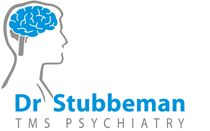
Tag Archives: tinnitus


Danbury Woman Shines Light On Non-Invasive Treatment For Depression
Danbury resident Martha Rhodes knows firsthand how difficult it is to beat depression. And now Rhodes is bringing awareness to a non-invasive treatment for depression called Transcranial Magnetic Stimulation.
Transcranial direct current stimulation may activate the human cerebral cortex, study shows
The notion that low levels of electrical stimulation applied to the scalp, barely enough to create a mild tingling sensation, could activate the brain is a relatively new and somewhat controversial idea.
Stimulating possibilities arise from brain study
The University of Queensland and QIMR Berghofer scientists have found that transcranial magnetic stimulation (TMS) can alter activity beyond the stimulated region and throughout the connected networks of the brain.
Treatment relieves depression with electrical stimulation
Major depression is one of the most common mental disorders in the United States. Transcranial magnetic stimulation is being used for treatment for a number of different health problems, including depression with positive results.
Transcranial magnetic stimulation: a non-invasive neurostimulation
Transcranial magnetic stimulation (TMS) is a type of non-invasive neurostimulation recently shown to restore function in spinal cord injury (SCI), when combined with stimulation of peripheral nerves.
Hearing Loss and Tinitus: The ringing, buzzing and hissing in the ears
Tinnitus, which is the number one medical injury that is affecting our military troops, has also become more prevalent in the United States population. There has, and continues to be, significant research on tinnitus and its treatment.
Healthwatch: Depression TMS
It's not a one-time solution. TMS is usually administered about 40 minutes a day, five days a week for six weeks. But Doctor Currier says it's one of the safest and most well-tolerated treatments for depression.
Magnetic Brain Stimulation can help treat drug resistant depression study finds
According to the results of a new study, the once-controversial method of beaming magnetic fields into the frontal areas of the brain saw one third of the 1132 patients with severe depression go into remission.
